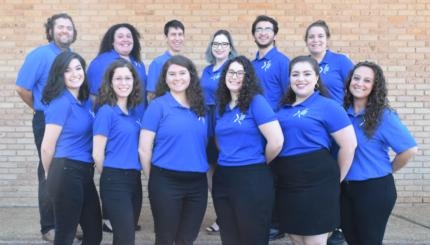We 21st century Jews like mentioning Hillel the Elder a lot. The man is one of few individuals on the planet who rivals folks like Martin Luther King and Yogi Berra for the title of “Most Quotable.” We discuss his famed on-one-foot recitation of what we now call the Golden Rule, and we deeply and rigorously analyze his famous three questions (If I am not for myself, who will be for me? If I am only for myself, what am I? And if not now, when?). But one of his quotes – the very first one in Pirkei Avot (Teachings of the Sages) for that matter – often goes unrecognized:
“Be like a disciple of Aaron, loving peace and pursuing peace, loving people, and bringing them closer to the Torah” (Mishnah Avot, 1:12).
When I was in college, I realized that this quote in many ways embodied what I wanted to achieve with my life. Professionally, I realized that, to be most happy, I would need to be spending my days from 9-5 tackling that last part: bringing people closer to the Torah and its teachings.
For two years as an ISJL Education Fellow, I have been privileged to do just that.
I have worked with congregations across the South, individuals across all age boundaries, and communities across a wide denominational spectrum. While each phone call has looked different and every community visit has taken a different form, what united them all was that text, the five books that have set the tone for the Jewish People for a few thousand years.
While I considered myself a religious Jew even before I took this job, I do not think it would be true to say that the Jewish calendar truly served as my foundation. I was a weekly Shabbat service attendee, and I observed holidays, but the ebb and flow of the Jewish year was not something I had fully internalized. By taking on this Fellowship, I took that next step on my Jewish journey.
People ask what caused me to apply for and accept this job down South, when I could have looked into other Jewish organizations closer to where I grew up (the Midwest) or where I went to college (the East Coast). There were a number of factors, but the primary one really was the opportunity to engage deeply and daily with the Torah. Who knew I’d find so many Torah-filled moments in Mississippi? But that’s what the Fellowship promised, and that’s what I experienced. I will always cherish the memories of engaging in Judaism alongside eager learners – like the seven wonderful students in Auburn, Alabama, featured in the image with this post, showing off their beautiful visual representations of the seven days of creation.
I came into this job as a 22-year-old recent graduate. Within the first couple of months on the job, I was asked to craft div’rei Torah, lead services in multiple denominations, and prepare engaging programming teaching students about these five ancient books that have endured for so long and which I truly believe have the potential to improve each and every one of us. More than simply reading the Pentateuch, I travelled through it with each passing week. More than anything else, that is what I take away from this incredible two years. Where I once read the Torah, I now experience it. It might feel like a small shift, but for me that change has been truly monumental. I couldn’t be more pleased that it happened, and I am beyond excited for the future Fellows who will soon be experiencing it themselves.
Like this post? Join the conversation through MyJewishLearning’s weekly blogs newsletter!
Avot
Pronounced: ah-VOTE, Origin: Hebrew, fathers or parents, usually refering to the biblical Patriarchs.
Shabbat
Pronounced: shuh-BAHT or shah-BAHT, Origin: Hebrew, the Sabbath, from sundown Friday to sundown Saturday.
Torah
Pronunced: TORE-uh, Origin: Hebrew, the Five Books of Moses.


